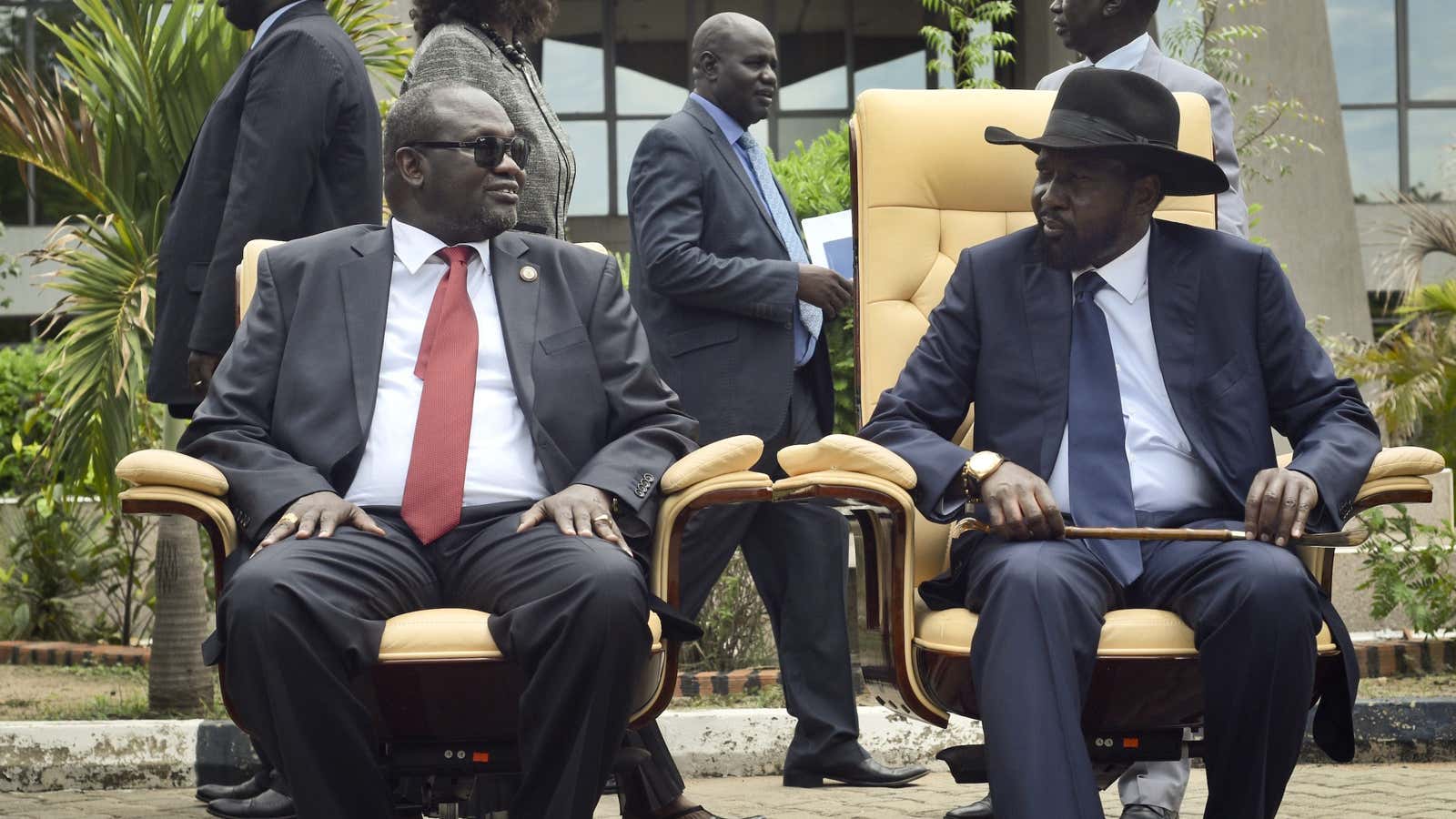Leaders from the two opposing sides of South Sudan’s conflict have amassed millions of dollars in illegal wealth, even as their country struggles under a civil war that has left tens of thousands dead and millions of others displaced and hungry.
Documents obtained by The Sentry, a Washington-based watchdog, link the power struggle and armed conflict in the country directly to corruption, and a fight over who controls the country’s natural resources. The report, titled “War Crimes Shouldn’t Pay,” is the product of a two-year investigation into the wealth of both government and opposition leaders in South Sudan.
The report shows the families and associates of both president Salva Kiir and former vice president Riek Machar have accumulated vast commercial interests and real estate acquisitions in major business sectors. Despite an annual government salary of $60,000, documents show president Kiir’s ownership of assets and luxury homes outside the country. The report also states that seven of Kiir’s children, including a 12-year-old son, and his wife own stakes in various commercial ventures.
Machar’s family also occupy large homes in Kenya and Ethiopia. His nephew, Bading Machar, is also said to act with impunity in the country.
The Sentry also found foreign companies making direct payments to high-ranking generals in the government. Lawyers have also played a crucial role in enabling the corruption, helping facilitate property acquisition and registration.
The report highlights that the leaders’ activities are in violation of the South Sudanese law, which bars officeholders (pdf, p. 40) from practicing private professions or undertaking commercial transactions. Nonetheless, these individuals and their families have continued in engage in private business, controlling interests in lucrative sectors ranging from oil, mining, banking, telecommunications, food, construction and military procurement. Together, the report says, they are “making a killing” out of the war, and creating a “violent kleptocracy” that continues to reap the benefits of the country’s wealth.
Sentry’s team gathered the materials by reviewing United Nations documents, news articles, corporate filings, legal records, satellite imagery and financial data, besides talking to over 100 individuals directly and indirectly linked to South Sudan’s government, opposition, and civil society.
South Sudan, the world’s newest state, has been engulfed by a brutal civil war since 2013. Fresh violence broke out again this year, on the eve of the country’s fifth independence anniversary. According to the United Nations Office for the Coordination of Humanitarian Affairs, the war has displaced more than 2.3 million people, with more than 5 million people needing humanitarian assistance.
The Sentry is an initiative founded by actor George Clooney and human rights activist John Prendergast. In their forward to the report, the two called for stronger financial regulation and for asset freezes so as to dismantle the corrupt system of nepotism and embezzlement that has fueled the deadly conflict.
In a press conference in Washington DC on Monday, the team said this was “just the beginning” of the investigation.
South Sudan is the most oil-dependent country in the world, according to the World Bank, with oil accounting for 60% of the country’s GDP, peaking in recent years with oils topping $100 a barrel. The abundance in oil revenues has become a catalyst for ethnic conflict, with both sides trying to seize oil fields so as to increase their income. Sentry’s report indicates how this oil wealth is spent not on government service delivery, but on military hardware that has been “used against South Sudanese civilians.” As oil prices have tumbled South Sudan’s young economy has followed suit.
